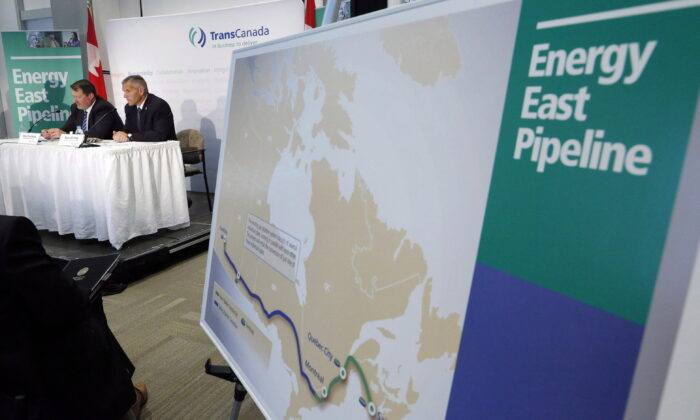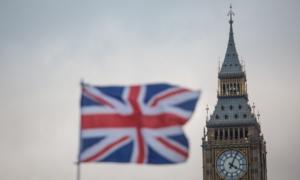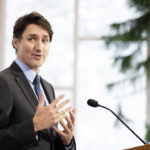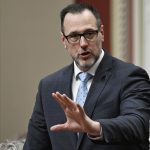Commentary
Why does it take a tariff threat from the president of the United States to force Canada to get serious about stopping the trafficking of illegal migrants and drugs across our borders?
For years, Canadian law enforcement officials, several premiers, and the Official Opposition in Parliament have been urging precisely such action. But the federal government, and provincial governments like that of B.C., steadfastly refused to respond vigorously to such calls—even labelling domestic advocates of such actions as racists. But when a newly elected U.S. president says “Jump” in reference to this issue, much of Canada’s officialdom scrambles to respond, even asking “How high?”
Why does it take the replacement of the political agenda of an outgoing American administration—one that prioritized climate change and carbon taxes—with a populist agenda addressing the “make-life-affordable” priorities of ordinary citizens, to get Canada’s political and academic establishment to grudgingly consider the need for a similar shift in Canada?
For years, significant numbers of Canadians, again including the elected Opposition in Parliament, have advocated such a shift from an elite-driven agenda to a public-driven agenda but have been contemptuously dismissed by the Trudeau government and its supporters as anti-science climate change deniers. But then such an agenda shift occurs in the United States, and overnight, those vying to replace Trudeau as party leader and who have been touting the same policies all along change their climate change tune.
Why does it take a threat to Canada’s trade relations with its largest trading partner to force Canada to get serious about strengthening its own domestic economy by eliminating major interprovincial barriers to trade?
For years, many Canadian economists and business leaders have advocated such a policy, highlighting the benefits to Canada. As recently as 2023, Professor Malcolm Lavoie (now Alberta’s deputy minister of justice) published a book strongly arguing that domestic free trade was an integral part of the economic vision of the Fathers of Confederation, and that the federal government should more vigorously to assert its trade and commerce power to eliminate internal trade barriers. But such a recommendation and how to implement it doesn’t become a priority for Canada’s federal government until prompted by a tariff threat from an American president. Why is that?
For years, provincial and corporate representatives of Canada’s petroleum sector have called for additional pipeline infrastructure to get Canada’s petroleum resources to key markets. And what has been the response of the federal government? For nine years it has opposed or delayed almost every major infrastructure project designed to increase Canada’s petroleum export potential—vetoing Northern Gateway in 2016, stalling Energy East until it was cancelled in 2017, making no effort to overcome Quebec opposition to essential pipelines, and imposing unconstitutional barriers to further pipeline construction through its “No More Pipelines Act” (Bill C-69).”
But lo and behold, on Feb. 6, Natural Resources Minster Jonathan Wilkinson suddenly announces that Canada should now consider building new east-west pipelines. Why? Because thousands of Canadians, especially in Western Canada, have demanded that for years? No! Because, according to the minister, President Trump’s threatened tariffs have exposed Canada’s “vulnerability” in energy infrastructure.
Why does it take prodding from the United States to get Canada to think more seriously about strengthening its military and addressing the urgent need for Arctic security, while the advocacy of such polices by distinguished Canadians like Gen. Rick Hillier has been ignored for years?
And why does it take foolishly exaggerated fears of a U.S. takeover of Canada—fears fanned by the same governments and commentators that fanned the fears of climate change and COVID-19 to gain public support for elite-driven policies on those issues—to stimulate genuine pride in our own country? Canadians have many solid reasons past and present to be proud of this country, notwithstanding the frequent trashing of our history and heroes by anti-Canadian academics often financed by federal research grants. Why then even consider, let alone succumb, to “Save Canada“ campaigns orchestrated by the very same people who caused Canadian pride in the country to sink to its lowest levels in history?
And most importantly, why on earth should Canadians allow the policies of a U.S. president to define who should be the next prime minster of Canada?
Just weeks ago, our lame-duck prime minister, his would-be successors, and much of the mainstream media were strong believers that the next prime minister should be a “progressive,” committed to climate change mitigation, carbon taxes, pipeline prohibitions, a woke-infused social agenda, and so on. Then suddenly—not in response to Canadians asking for different leadership, but in response to the election and policies of a U.S. president—all have made a 180-degree turn. Now they and most of the mainstream media boldly proclaim that Canada’s next prime minister must be a reactionary—reacting to Trump’s tariff agenda with a hastily concocted package of counter-tariffs and fanning the flames of anti-Americanism to return a heretofore discredited party to office.
At the moment, Mark Carney, his conversion from a progressive to a reactionary almost complete, is of course being hailed by the unthinking as the reactionary of choice. But not all the cards are on the table—not the yet-to-be-announced and vigorously promoted negotiating team and long-term strategy of the official Opposition and their provincial allies to address the tariff challenge; not the internal pressures on Trump and the U.S. Congress when Trump’s populist constituents, who were promised actions to decrease their cost of living, suddenly discover it increasing as a result of tariffs; and not yet the election campaign, which will test the sincerity of the death-bed conversion of the Liberal Party and its leadership to policies they denounced just weeks before and which will offer alternatives unencumbered by any involvement with those discredited policies.
Why? Why? Why? Why? Why? The proper answers to these questions are complex and require more space and discussion than allowed by an opinion piece such as this. But two conclusions are clear.
First, that democracy in Canada—its institutions, its practices, and it communications—is weak, ineffectual, and in need of reform. When changes in the desires and agendas of the Canadian electorate get no response, or only a belated response from an elected government and only when prodded by the leader of a foreign country—surely that is telling us in unmistakable terms that democracy in Canada is not working.
There are of course other signs and they have been evident for a long time—an unelected Senate, capable of blocking or amending legislation from the elected House of Commons and accountable to no one other than the prime minister who appoints its members; complete abandonment of the principle that all Canadians are to be treated equally under the law regardless of race, colour, gender, sexual orientation, etc., and increasing adoption of the discriminatory principle that the law and public administration are to confer special status on some Canadians rather than others because of their race, colour, gender, sexual preferences, etc.
Then there’s the increasingly partisan nature of appointments to the judiciary and the senior levels of the civil service; the growing absence of genuine democratic discourse in which legitimate alternatives are clearly presented and honestly debated, and its replacement with an intolerant cancel culture which refuses even to listen to, let alone debate, any position other than that dictated by its propagators; and the steadily declining percentage of Canadians who vote at all in federal and provincial elections, and especially in municipal elections where the mayors and councils of many of our major cities are elected by less than 20 percent of the eligible voters.
The list of ever-weakening democratic institutions and practices goes on and on, and its existence therefore demands that democratic reform must be very high on the platforms of our political parties contesting future elections.
Secondly, in my view, it is necessary for Canadians from coast to coast to frankly acknowledge that for the last nine years Canadian public opinion, and Canada itself at the national government level, has been led and shaped by the wrong people with the wrong prescriptions for our national and personal well-being. Their emerging plan to retain influence and power by now presenting themselves as the leaders of a “Save Canada from Trump” campaign—the very Canada they themselves have misled and misgoverned—must be vigorously and widely resisted with a “Save Canada for Canadians” alternative.
In particular, what must be disproven and repudiated is the callous proposition that the only way to revitalize the faith of Canadians in their own country—the only way to get them to wave and salute their own flag—is to prod them with a threat from a U.S. president. The first real chance to do all this will be in the next federal election, an election which ought to put Canada on a new course with new leadership, supported not by a disingenuous appeal to anti-American sentiments, but by a deep and lasting surge of genuine pro-Canada patriotism.
Views expressed in this article are opinions of the author and do not necessarily reflect the views of The Epoch Times.













